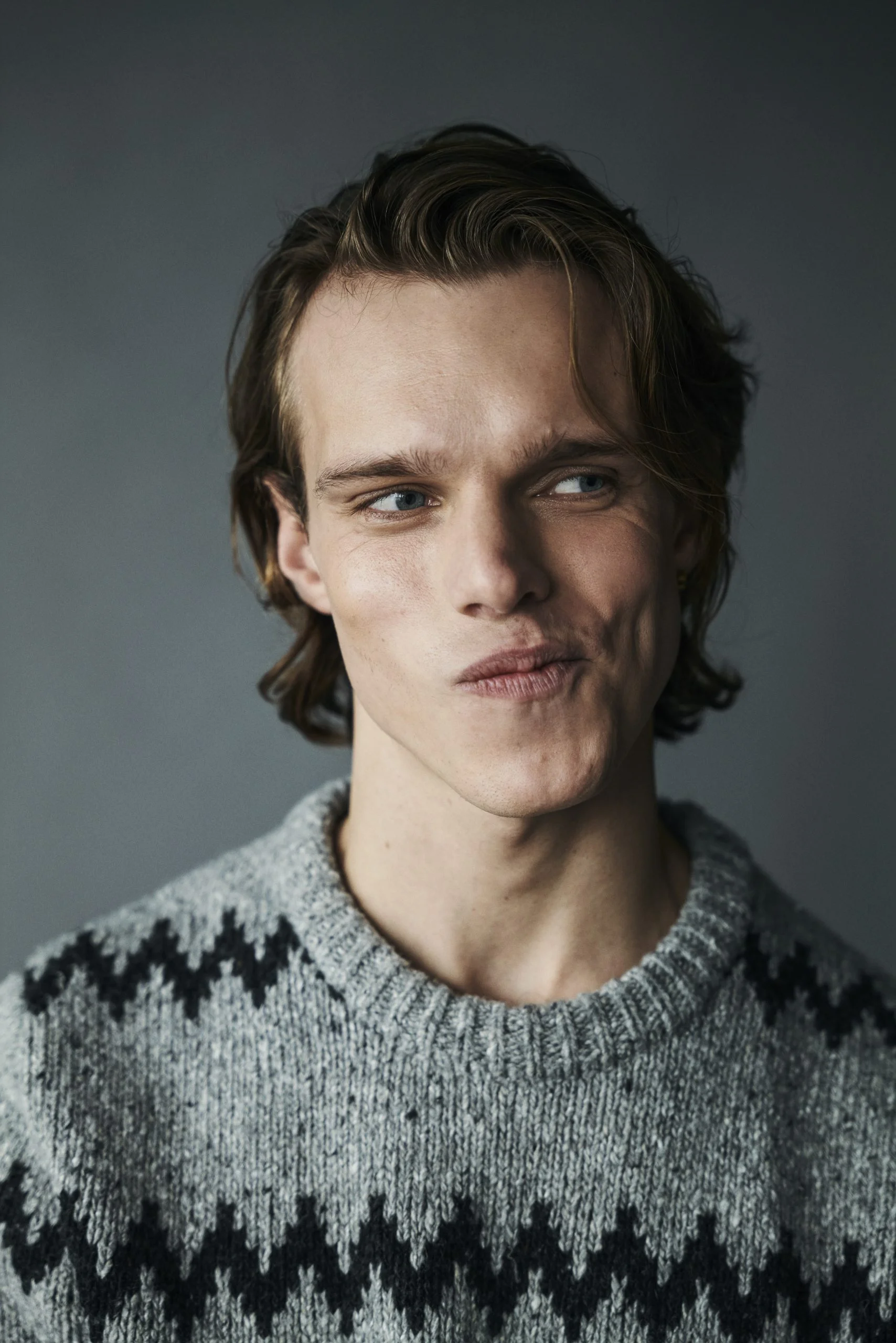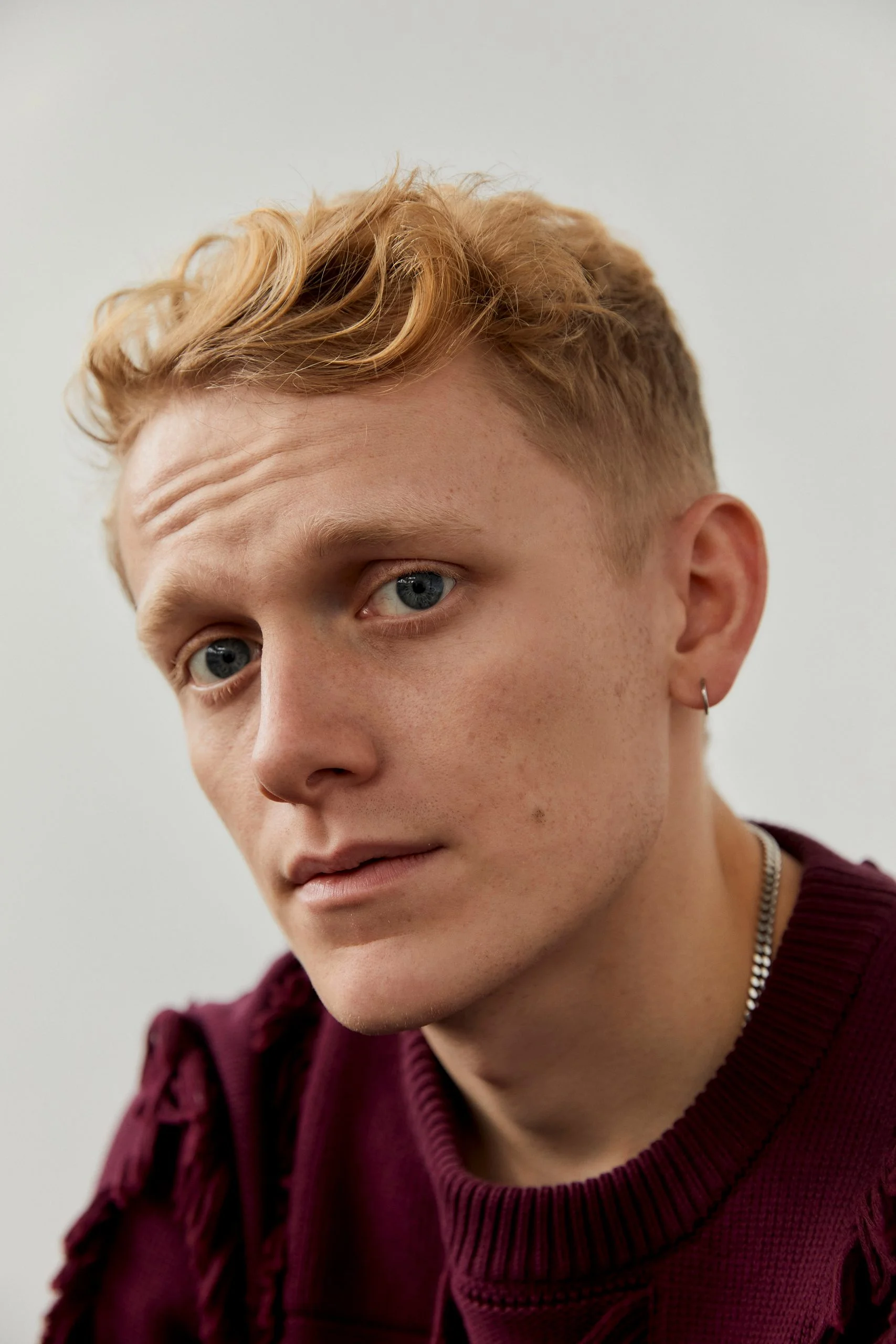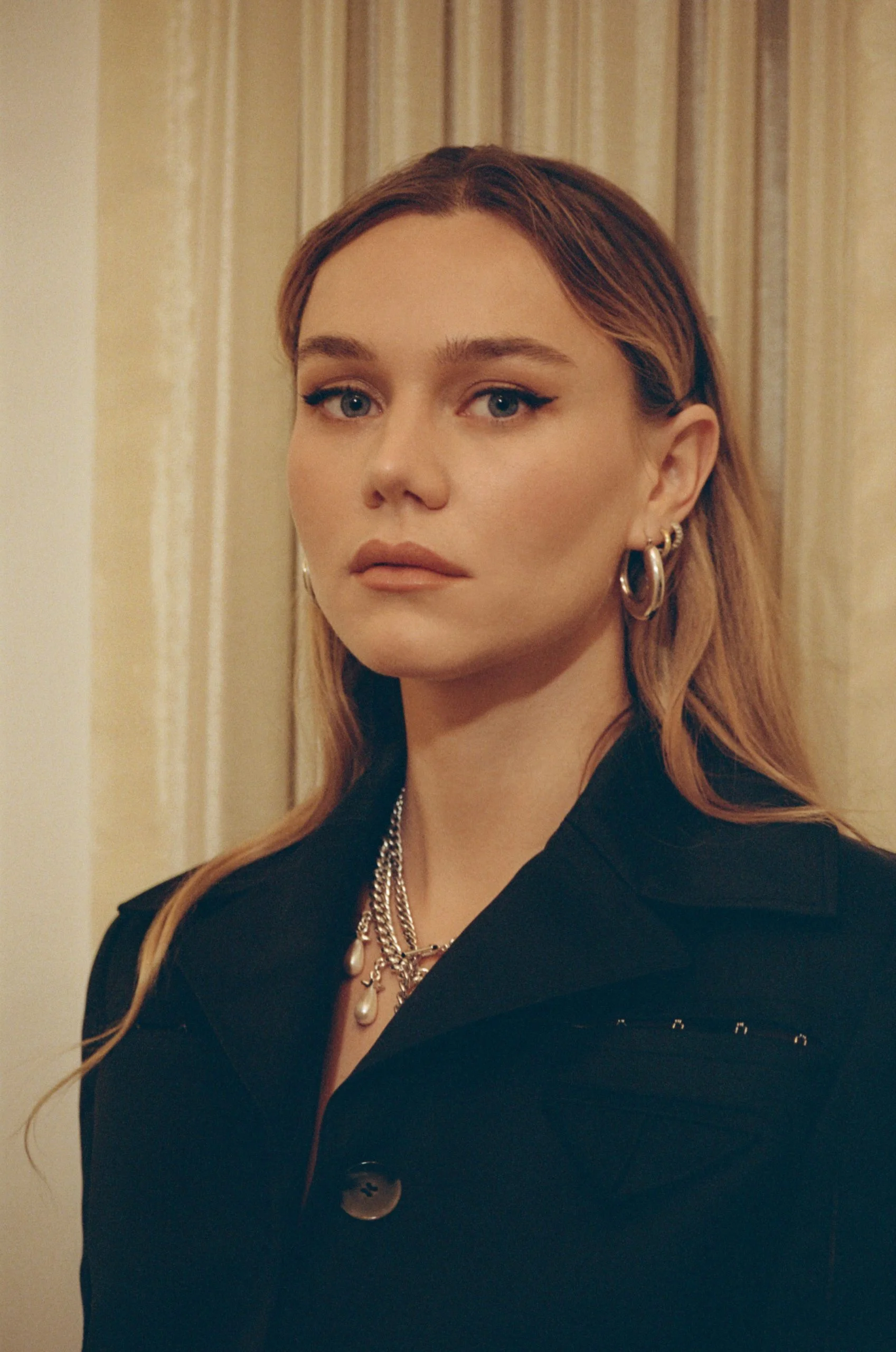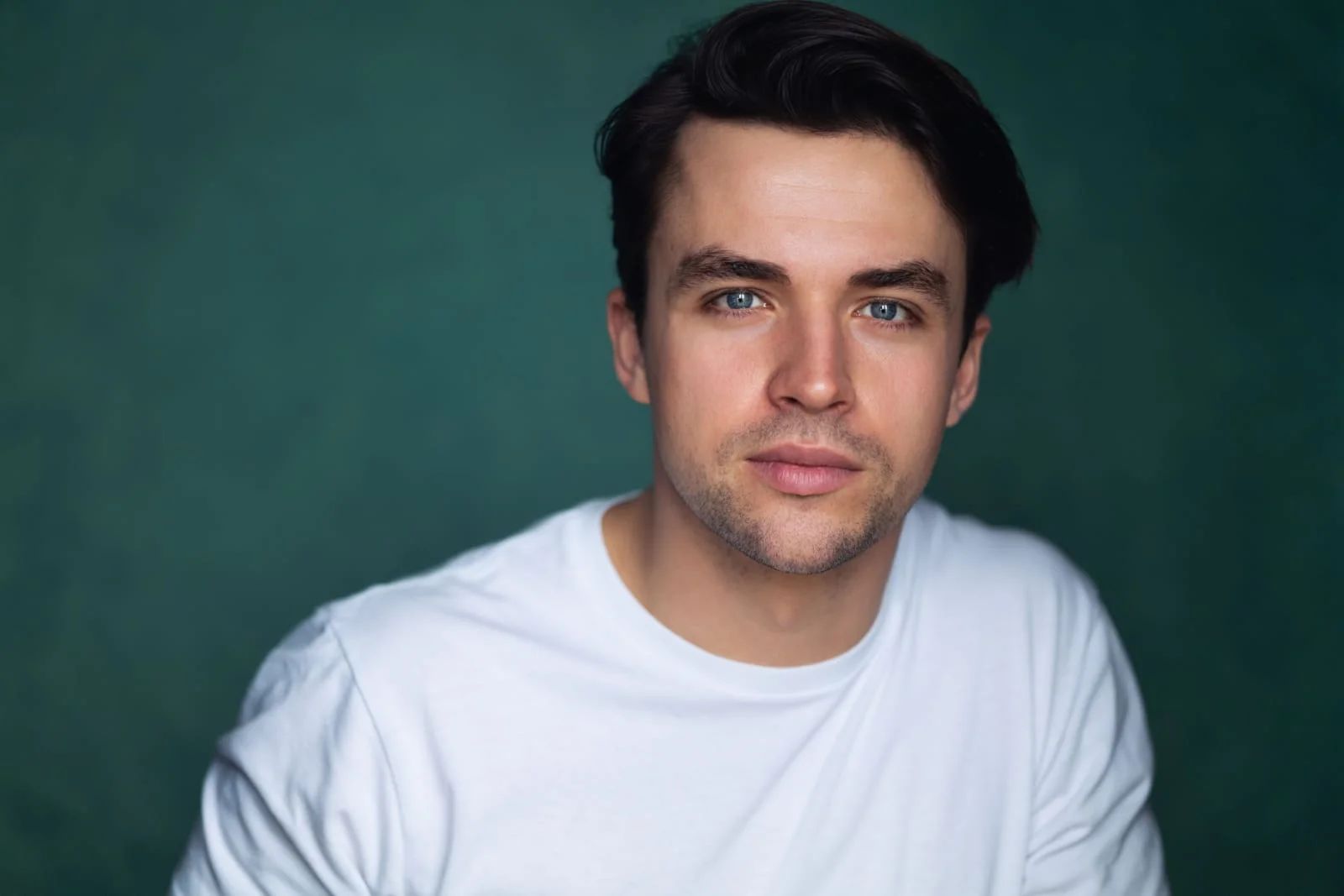
Andrew Horton
After almost two long years anticipating the release of Netflix’s Jupiter’s Legacy, actor Andrew Horton is just as ecstatic as fans are for it to finally be out.
Since announcing his casting in February 2019 and filming the first season of Jupiter’s Legacy at the end of that year, it would be something of an understatement to say Andrew Horton has been waiting with bated breath for it to drop on Netflix. But, like with all good things, the arrival of Jupiter’s Legacy has been well worth the wait. Derived from the comic by Mark Millar and drawn by Frank Quitely, Jupiter’s Legacy mirrors themes happening in our day-to-day life — from dysfunctional family drama to navigating power imbalances in society to struggling to live up to a family legacy and American ideals.
Horton stars as Brandon Sampson (AKA The Paragon), the son of Josh Duhamel’s character Sheldon Sampson (AKA The Utopian) who is the leader of the Union of Justice superhero team. At its core, Jupiter’s Legacy explores the dynamic between family and legacy, and what it means to constantly live up to something that seems impossible to achieve.
In conversation with 1883 Magazine, Andrew Horton speaks about his beginnings as an actor, why Jupiter’s Legacy is as important as any other drama on television, and why he’s passionate about opening up the discussion surrounding body dysmorphia and mental health.
Andrew! How are you doing now that Jupiter’s Legacy is finally out?
It’s been a strange time, to be honest. I was cast in the role over two and a half years ago and we shot it about two years ago at this point. It’s great to see it finally out in the world and seeing everyone responding very well to it.
Yeah, I saw on Instagram you announced the casting back in February of 2019.
It’s been a long time coming! My girlfriend and I have been talking about it for two years and people ask if my life has changed at all and I have to say Well, no because we thought my life was going to change two years ago! [Laughs]
I know you grew up with a love of performing, but was there ever that one specific moment when you thought: this is what I want to do for the rest of my life?
Apparently, it was when I was in primary school because recently when I was helping my dad move last summer from what was my childhood home to where he lives with my stepmom now, we found pieces of paper of what is a goodbye letter asking students what they wanted to do in the future. I had written that I wanted to be an actor or a singer, so I must’ve known since then!
You went to uni for drama, right?
Yeah, which is a bit different than acting school. The experience of university was great for me because I met a lot of my best friends and girlfriend and got a lot of life experience that I needed. I think if I went straight into acting right out of college, I wouldn’t have been ready for what the industry throws at you because a lot of the time it’s not very kind. It helped me develop my acting skills in a practical way and was able to be involved in a lot of extracurricular plays which gave me the confidence to audition.
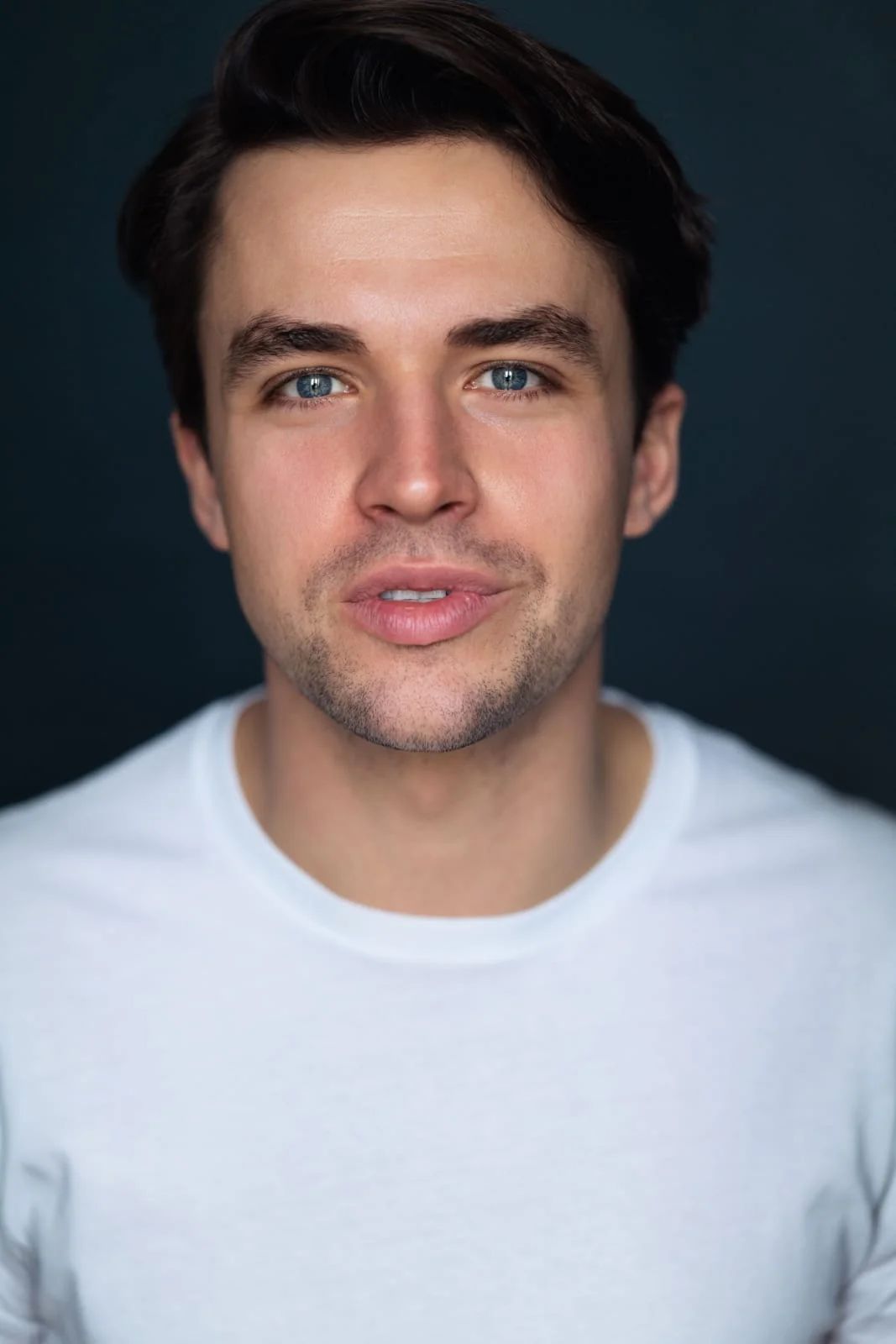
For those who haven’t heard of it, can you tell me a bit about Jupiter’s Legacy and your character Brandon?
Jupiter’s Legacy is a multi-generational superhero saga that spans 100 years. There are original superheroes that gained their powers in the 1920s just after the Wall Street crash. They create this legacy of being the world’s first superheroes and living through all of these years without directly interfering with things due to a code that they live by, which is not to kill. In the present day, they have their children who are struggling to live up to the greatness of their parents. Brandon is the son of Sheldon and Grace who, for superhero fans, would be comparable to Superman and Wonder Woman. I’m one of the children failing to live up to the expectations of my parents, specifically my father because I’m training to take over his position but he doesn’t think I’m ever going to be ready.
It’s a really interesting dynamic because it’s very much a tale of a dysfunctional, messy family with the superhero aspect.
I think that’s what makes it pretty unique because it shows the focus on familial relationships and people trying to find themselves whether that’s in the past or the present. Everyone is looking for something and not exactly finding it which is what makes it engaging and relatable as well because, despite it being in a superhero world, it’s deeply human.
I like that the show mirrors what’s happening in real life now; a lot of the show focuses on the younger generation in The Union trying to grapple with the code and whether it still works in a modern superhero world. In episode 6 where Grace finds Janna right before she dies and she’s pleading that she didn’t break the code, she is clearly obsessed with doing the right thing. I think those themes are even prevalent with kids today. How has it been to explore these themes in the show?
It’s interesting because it’s quite close to the bone so, in a sense, you’re telling a story that’s very pertinent and relevant to what’s going on today. Without getting too into the show, you could touch upon those themes and highlight certain issues — like the abuse of power and who should have that power and why. On top of that, you have those family relationships with children struggling to live up to expectations. I could relate to Brandon because my father is an academic; he’s the smartest man I know and spent 7 years at uni. So, for me to become this drama person, I didn’t exactly feel like I was achieving what he wanted me to achieve. He didn’t explicitly pressure me and he’s nowhere near as harsh as the utopian is.
Like Brandon, I know what it’s like to feel as though you’re not meeting someone’s expectations whether that’s within my family life or whether it’s within the industry that I work in because you go up for so many jobs and you get rejected so many times and that’s very hard to deal with. In a similar sense, Brandon is being rejected by his father because his father doesn’t think he’s good enough for the job that he has been preparing for his entire life. It’s like with casting directors as well when they can turn around say yeah, thanks but no thanks.
I feel kids have a very ingrained need to impress their parents; you just want them to tell you they are proud of you.
It’s just an ingrained thing with society right now… to delve into those kinds of ideas. It felt so different from other superhero stuff right now and I think that’s what is making the genre grow and thrive even more because it’s making people’s lived experiences universal. The finale of The Falcon and the Winter Soldier is a great example — Anthony Mackie’s speech in the finale was so powerful, so incredibly loaded. It wasn’t a coincidence; the writers wanted that to be intentional and take these themes and integrate them.
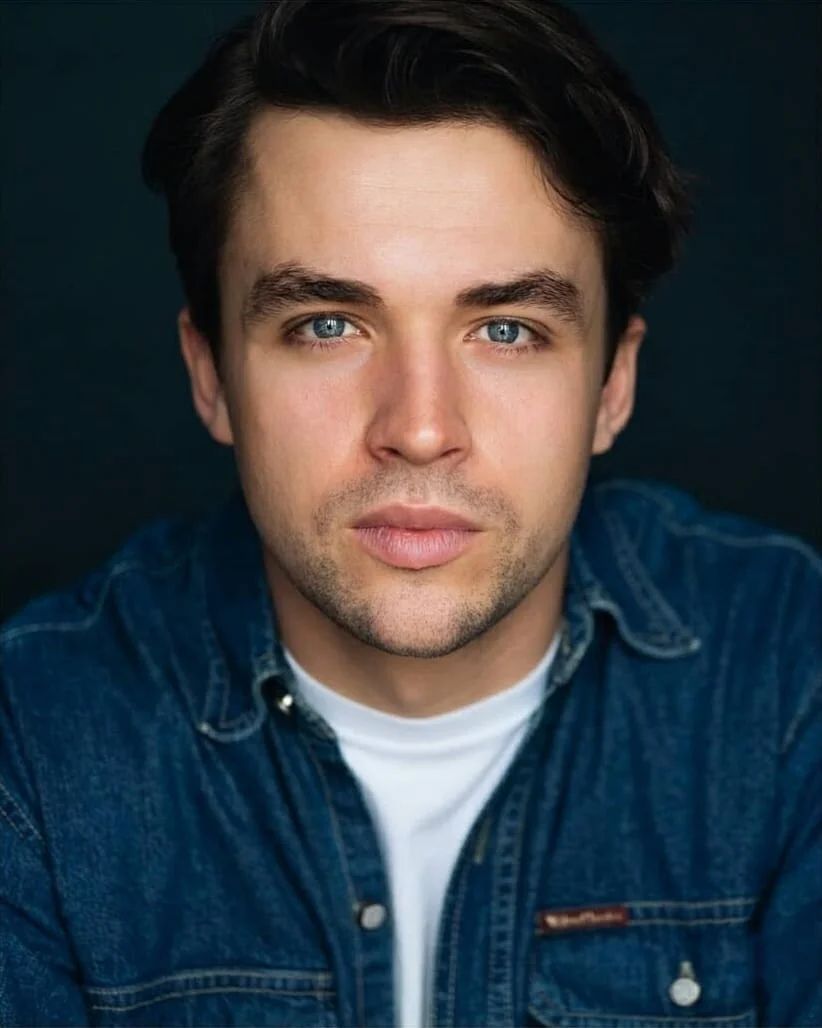
At the core of the show, it’s really about the father-son relationship between The Utopian and Brandon and the pressure both of them feels to be wholeheartedly perfect and good — The Utopian is trying to keep everything together the way it was in the past and Brandon is grappling with the pressure of legacy. It highlights the ripple effect of generational trauma, to an extent, with both characters suffering from toxic masculinity while they try to be what everyone else expects them to be. Is that something you noticed?
Absolutely. It’s interesting because you have the relationship between Brandon and Sheldon which is so non-existent and then compare it to the character of Hutch and his father, Skyfox. Both fathers and sons can’t communicate but for completely different reasons because one is out of the picture and, ironically, the one who is in the picture is even less capable of speaking with his son. In terms of toxic masculinity, it’s about trying to embody the ideal man and Brandon knows he can never achieve that if his father won’t accept him for what and who he is. Obviously, people watch these shows as a form of escapism, but you can immediately recognize themes like toxic masculinity come through. You think of superheroes as being these perfect people, but they are humans and humans are flawed.
Going into the show, I was expecting Brandon to have a bit of a chip on his shoulder and be a bit cocky, but he’s emotionally complex. Is there anything about playing Brandon that surprised you while filming?
I liked that about him because he’s very different from his portrayal in the comics. In the comics, he’s petulant and narcissistic and completely disillusioned with his father and he’s not a part of the Union and doesn’t want to be part of the Union. Giving him that backstory and that emotional depth, for me, was perfect. If we go beyond season one, which I hope we do, it sets Brandon up for far more of a journey to go from being so earnest and so obsessed with being worthy to then becoming completely disillusioned by his father. You start to see that creep in at the end of the series with Brandon almost getting killed and Sheldon saying “I wasn’t going to let you die” and we hold that stare for so long and you physically see Brandon not believing it. That rift begins to open up which is a big sign of what’s to come.
As an actor, that must be really exciting because you get to play a good guy and dip a toe into darker territory.
Have you read the comics?
No!
Well, not to spoil it, but Brandon does go full-on bad guy.
That will be even more fun for you to play!
I would absolutely love to play a bad guy and sink my teeth into that. When I read the comics and realized after I was cast Brandon was coded as being good, I was a little bit disappointed because I was playing an earnest good guy again. I think the payoff will be so much more rewarding if we do see Brandon’s descent into darkness.
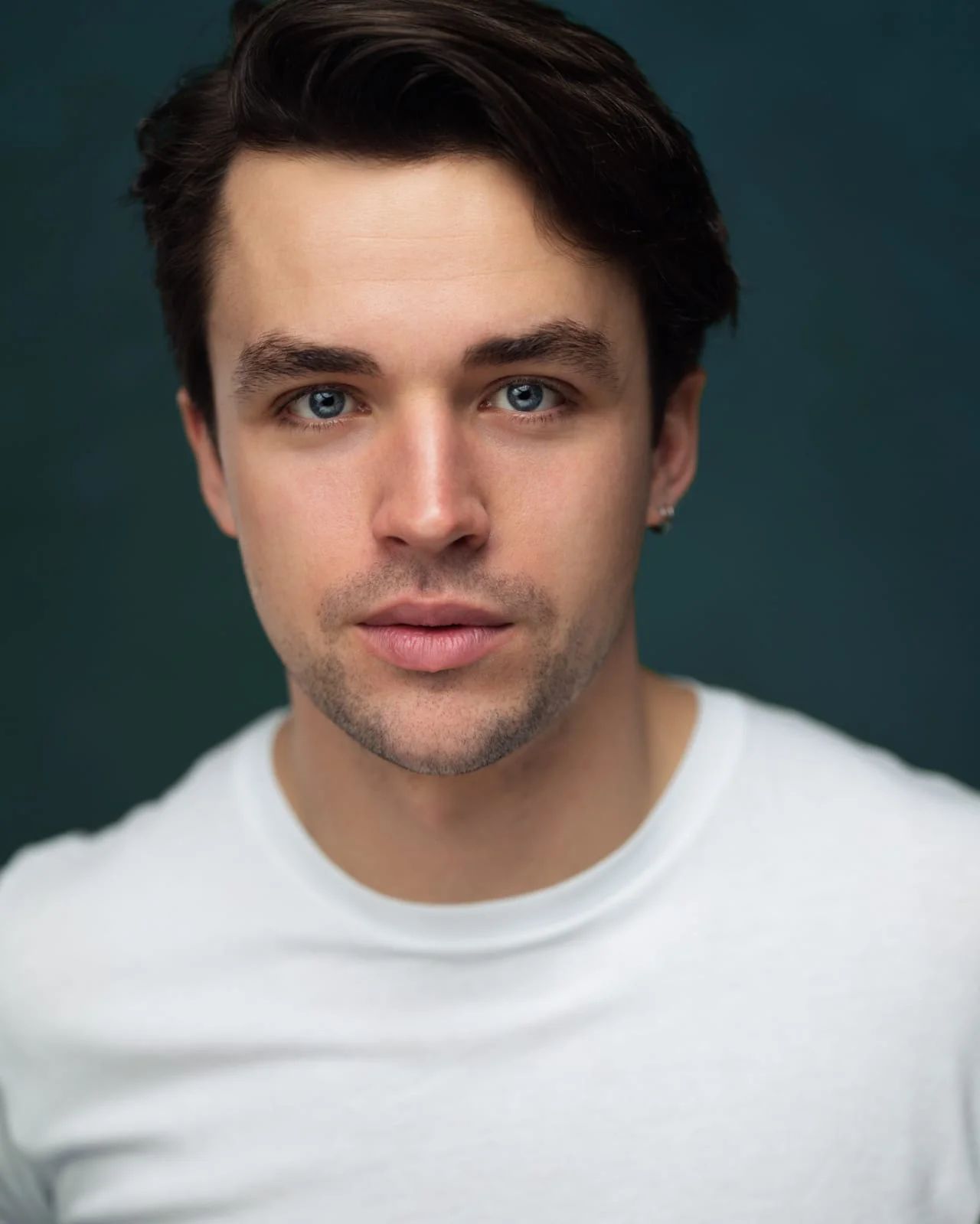
Outside of acting, you’re outspoken about mental health initiatives and opening up the discussion surrounding body dysmorphia, which is a topic that I feel many people struggle with but not many actually about it.
It’s important within this industry in particular because the standards men and women have to uphold themselves to are so high and so unrealistic, it creates an enormous amount of stress for the person who’s been put in that position. It’s incredible to get paid to train and be in that kind of shape, but to maintain that shape is not feasible or maintainable unless you’re starving yourself. Some people have nutritionists or personal chefs and they’re able to pay for all of this great stuff, but for the average person who is trying to develop a superhero body and just doing it for no other reason other than an aesthetic… I would say it’s not worth it.
Mentally and physically it must take a toll on you to an extent.
Yeah, the only reason I did it was because of the role. I wouldn’t choose to, otherwise. I don’t choose to stay in that shape the rest of the time because I love eating chocolate, drinking beer and wine, and enjoying life as much as I can. I struggled a lot with that out in Canada because you’re surrounded by these incredibly fit people and you’re conscious that you’re going to be on camera in front of millions of people globally. I was terrified about how my shirtless scene would come out and then I was very pleasantly surprised when I saw it because I was kind of anticipating watching it and then crying afterwards — that’s how much it affects and scares me. The reason why I want to open up a discussion about it is that it’s a very limiting experience in terms of how you can perceive yourself. Regardless of how you look, if you are happy, and you are leading a good life.
It’s important to have this discussion because you’ll read in magazines like Men’s Health talking about how to achieve Chris Evans’ Captain America diet when it’s not exactly attainable and it might not even be healthy for that particular person.
Exactly. Nobody needs to have less than 10% body fat if they don’t need to. I probably wasn’t even that because I was not strict enough with my dieting because I wanted to eat the lovely cuisines that are available to you in Canada and try out one of the many craft breweries that there are! [Laughs] It’s important to me to make people know that it’s okay to talk about it, especially as a man.
There’s the mental health aspect to it as well, something that’s stigmatized for men to speak about.
Yeah, it’s considered more taboo amongst men and it shouldn’t be because if you are not doing well, you should talk to someone about it and you should not suffer in silence and it’s the same with body dysmorphia. I just want people to know that it’s fine to feel how you feel and look how you look just so long as you can be happy, that’s the most important thing. It’s not something that’s discussed in the mainstream media at all and it should be. I’m sure a lot of these guys are in the best shape they’ve ever been and you see people being photographed afterwards when they’ve had no two weeks of a training regimen where they’re training six hours a day, eating only clean calories, not eating sugar, and then they eat normal food and they have a little bit of bloating, and then they’re crucified in the press. That’s a whole other kettle of fish but people shouldn’t be criticized for living their lives, essentially.
I know Sebastian Stan has talked about how he struggled with his body image for years and he only just recently felt comfortable to share that photo a year or two ago.
I loved Sebastian already before that, but that photo just made me like him even more. It validates your own experience. If the bloody Winter Soldier is feeling that way, as a guy with arguably one of the best physiques in Hollywood, then anyone can feel like that. Mental health is mental health; it’s not exclusive to a megastar or a normal person. It needs to be addressed and to be taken seriously and treated with compassion, not as something to push under the rug.
I’m sure a young person will stumble upon this interview and feel really relieved that there’s a superhero speaking on these issues.
I hope so!
Lastly, if you could manifest one thing for yourself this year, what would it be?
Big question. I hope Jupiter’s Legacy continues to open up all of the right doors and lead to more work and interesting and varied work. I just hope that we’ll get a second season! I’ll manifest that first and foremost. I hope it will get me seen by the right people and get me through the right doors.
Interview by Kelsey Barnes
Photography by Cam Harle
Jupiter’s Legacy is streaming on Netflix now.



